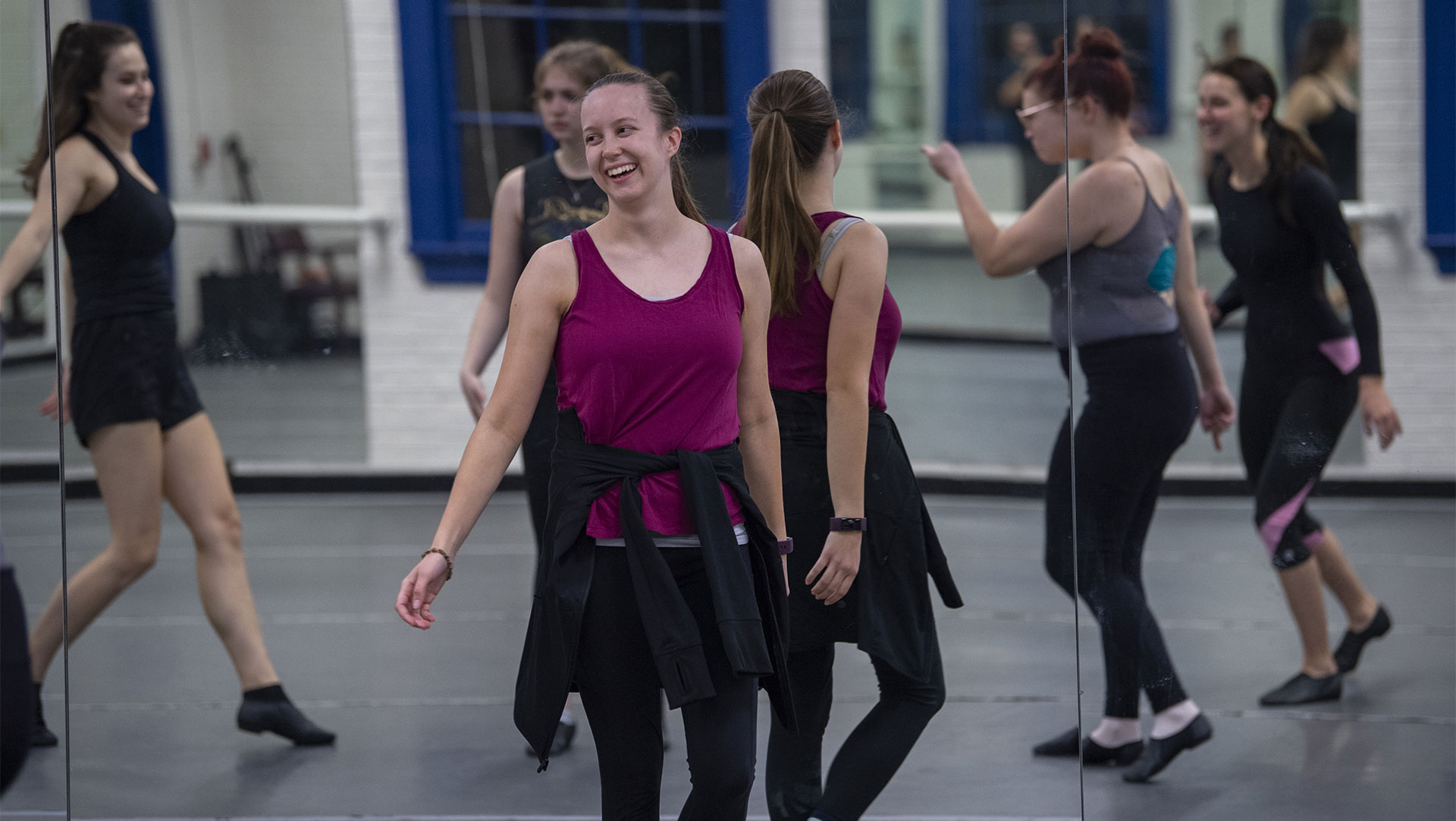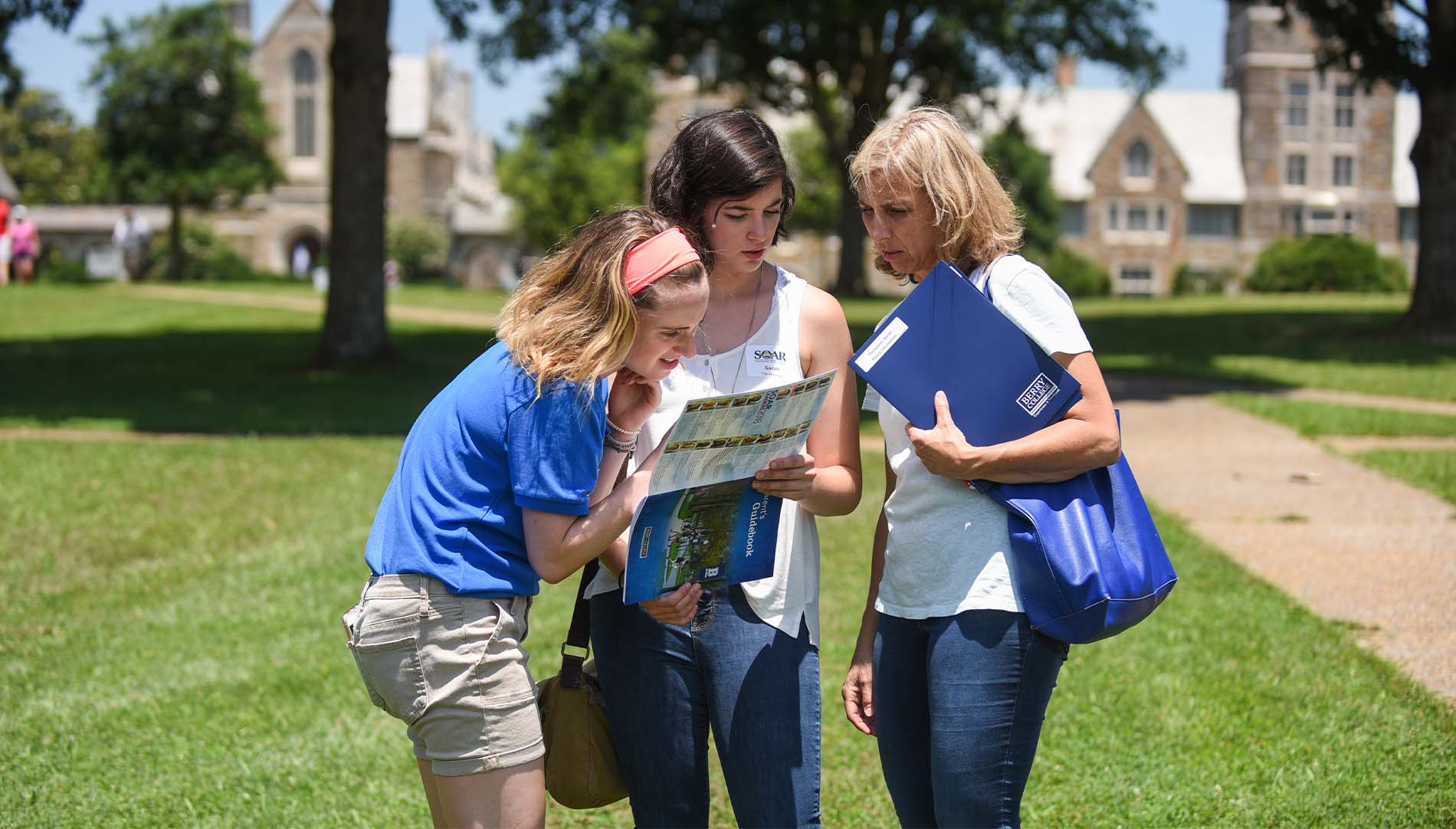Having danced since the age of three, Elena Baker ’22, now a dance instructor and schoolteacher, came to Berry with every intention of gaining a broad background in the art form. “I knew I not only wanted to be a part of the dance company, but I also wanted to take more courses about choreography, improvisation, dance history and pedagogy,” she says.
After experiencing the exhilaration of performing on stage, Elena stepped into the role of choreographer for the Berry College Dance Company. “Elena choreographed multiple dance pieces and evolved as an artist and performer, while honing her skills in creating and shaping movement to effectively express ideas to audiences through the coursework,” notes Sara Pecina, visiting assistant professor of dance and director of the dance program. “She was heavily involved in assisting me behind the scenes in producing the dance concert each semester, allowing her to understand project and people management through hands-on experience.”
Pecina emphasizes Elena’s cultivation of transferable skills: “Through her work as a supervisor and choreographer, she developed skills in time management, communication, organization, teamwork, motivating others and creative problem-solving.”
Elena says this breadth of experience typifies arts programs at Berry. “The college is unique in its opportunities for people in the arts. Students gain experience in all aspects of a production and grow in these areas before they ever cross the graduation stage,” she explains. “They’re set up well beyond Berry, having already gained experience — whether managing a dance concert, designing lights for an opera, installing displays in an art gallery or working with innovative technology in a theatre production. … Students are able to be engaged with the audience on stage but are also able to engage behind the scenes.”
Arts programs at Berry exemplify a broad approach to career preparation. For example, if acting is your primary focus, you still have opportunities to learn about directing, set construction, lighting, props, costuming, makeup and the business side (house management, box office, publicity and sales). Capable of pivoting between theatrical styles, graduates have the capacity to respond to industry calls for a wide range of positions. Similarly, the music program, one of the oldest and most comprehensive in the Southeast, offers degrees built on a liberal arts foundation, with majors in music, music performance, music education and music business. Theatre and music majors have the option to add a minor in musical theatre.
In true liberal arts fashion, Elena used dance to communicate concepts of environmental science in a film that was part of her Honors thesis. “I researched wildfires, glaciers, ocean tides and wind patterns,” she says. “Using information about what each one is and how they change over time, I created dances based on each of the topics. The goal of the dances was to take the essence of each process and put it into movement, using physicality to show the natural rhythms and movements of each environmental process. To aid in explaining the topics, I added narration to the dances after filming.” The recipient of several research grants, Elena used her Richards Undergraduate Research Grant to fund the camera and costumes used in filming.
“Dance has provided both a creative outlet and unique communication method for Elena’s science studies,” Pecina says. “Movement is the most universal form of communication, and Elena explored how to utilize this potential to educate the general public on environmental issues.”



